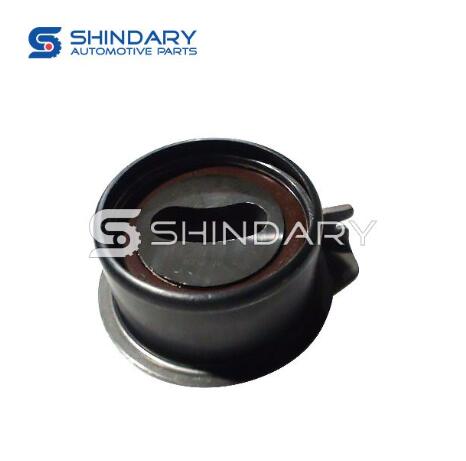How Do I Know if My Timing Belt Tensioner Is Bad?
The timing belt tensioner plays a crucial role in the proper functioning of an engine's timing belt system. It is responsible for maintaining the correct tension of the timing belt, which ensures synchronized movement between the engine's crankshaft and camshaft. If the timing belt tensioner becomes faulty or fails, it can lead to severe engine damage. In this article, we will explore the signs that indicate a bad timing belt tensioner and the importance of addressing the issue promptly.
1. Introduction
The timing belt tensioner is a component that maintains the proper tension of the timing belt in an engine. It ensures that the timing belt remains tight, allowing for precise coordination between the crankshaft and camshaft. If the tensioner malfunctions, the timing belt may become loose or excessively tight, resulting in incorrect valve timing and potential engine damage.
2. Understanding the Timing Belt Tensioner
The timing belt tensioner consists of a pulley and a spring-loaded arm. The pulley rotates with the engine's crankshaft, while the arm exerts pressure on the timing belt, maintaining the desired tension. It is designed to compensate for the natural stretching and wear of the timing belt over time.
3. Signs of a Bad Timing Belt Tensioner
Recognizing the signs of a bad timing belt tensioner can help you address the issue before it causes significant engine damage. Here are some common signs to look out for:
3.1. Excessive Noise
A faulty timing belt tensioner can produce abnormal noises. You may hear a rattling, grinding, or squeaking sound coming from the engine area. These noises often indicate that the tensioner is not functioning correctly or that the timing belt is loose.
3.2. Misalignment or Slack in the Timing Belt
Inspect the timing belt visually to check for misalignment or slack. If the timing belt appears loose or exhibits unusual movement, it could be a sign of a faulty tensioner. In some cases, you may notice visible wear, fraying, or cracks on the timing belt, indicating a problem with the tensioner.

3.3. Engine Misfires or Vibrations
A bad auto timing belt tensioner can cause irregular engine performance. You may experience engine misfires, rough idling, or vibrations while driving. These symptoms occur due to improper valve timing, resulting from a loose or improperly tensioned timing belt.
3.4. Overheating Engine
If the timing belt tensioner fails completely, the timing belt can slip or skip teeth on the camshaft sprocket. This can lead to the misalignment of the camshaft and crankshaft, causing the valves to open and close at the wrong time. The engine may run poorly or even overheat due to this timing mismatch.
4. Causes of Timing Belt Tensioner Problems
Several factors can contribute to timing belt tensioner problems. Common causes include:
Normal Wear and Tear: Over time, the tensioner's internal components can wear out, leading to decreased functionality.
Tensioner Spring Fatigue: The spring in the tensioner can weaken or break, causing insufficient tension on the timing belt.
Contamination or Lubrication Issues: The tensioner pulley may become contaminated with dirt, debris, or oil, affecting its smooth operation.
Improper Installation or Adjustment: If the tensioner is not installed or adjusted correctly during maintenance or repair, it can result in tensioner failure.
5. Addressing a Bad Timing Belt Tensioner
If you suspect a problem with your timing belt tensioner, it is essential to address it promptly to prevent potential engine damage. Here are the recommended steps:
Visual Inspection: Inspect the timing belt for signs of wear, misalignment, or damage. Pay attention to any unusual noises or vibrations coming from the engine area.
Professional Diagnosis: If you notice any concerning signs, it's advisable to consult a qualified mechanic or technician. They will perform a thorough inspection and diagnostic tests to determine the exact cause of the issue.
Tensioner Replacement: If the timing belt tensioner is found to be faulty, it should be replaced with a new, high-quality tensioner. It is also recommended to replace the timing belt simultaneously to ensure proper functionality and longevity.
Comprehensive Timing System Inspection: During the replacement process, the entire timing system, including the camshaft and crankshaft sprockets, should be inspected. Any worn or damaged components should be replaced to avoid future problems.
6. Frequently Asked Questions (FAQs)
6.1. How often should the timing belt tensioner be replaced?
The timing belt tensioner does not have a specific replacement interval like the timing belt itself. However, it is generally recommended to replace the tensioner whenever the timing belt is replaced or if any signs of tensioner failure are detected.
6.2. Can I replace the timing belt tensioner myself?
Replacing the timing belt tensioner requires a certain level of mechanical skill and knowledge. It is recommended to have it done by a qualified mechanic or technician to ensure proper installation and tensioning.
6.3. What happens if the timing belt tensioner fails?
If the timing belt tensioner fails, it can result in improper valve timing, which may cause severe engine damage. This can lead to bent valves, piston interference, or complete engine failure.
6.4. Can a faulty timing belt tensioner cause a loss of power?
Yes, a faulty timing belt tensioner can disrupt the engine's valve timing, leading to reduced engine performance and power loss.
6.5. Is it necessary to replace the timing belt along with the tensioner?
It is highly recommended to replace the timing belt along with the tensioner. Since both components work together and undergo similar wear, replacing them simultaneously ensures optimal performance and avoids potential future failures.
In summary, a bad timing belt tensioner can have detrimental effects on engine performance and longevity. By being aware of the signs of tensioner failure and taking prompt action, you can prevent costly engine repairs and maintain the reliability of your vehicle's timing system. If you suspect a problem with your timing belt tensioner, consult a professional mechanic for an accurate diagnosis and necessary repairs.



